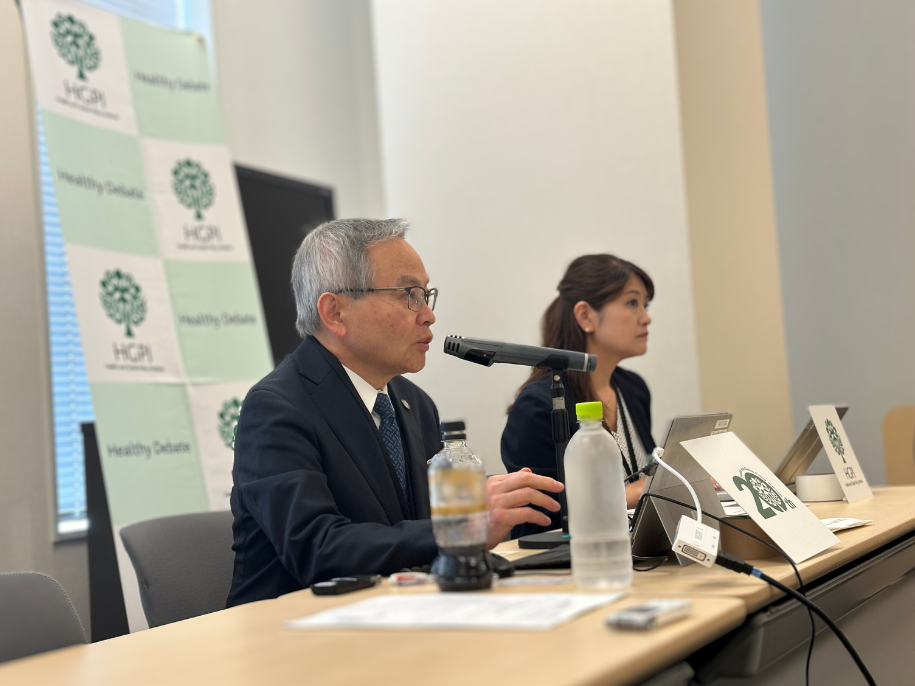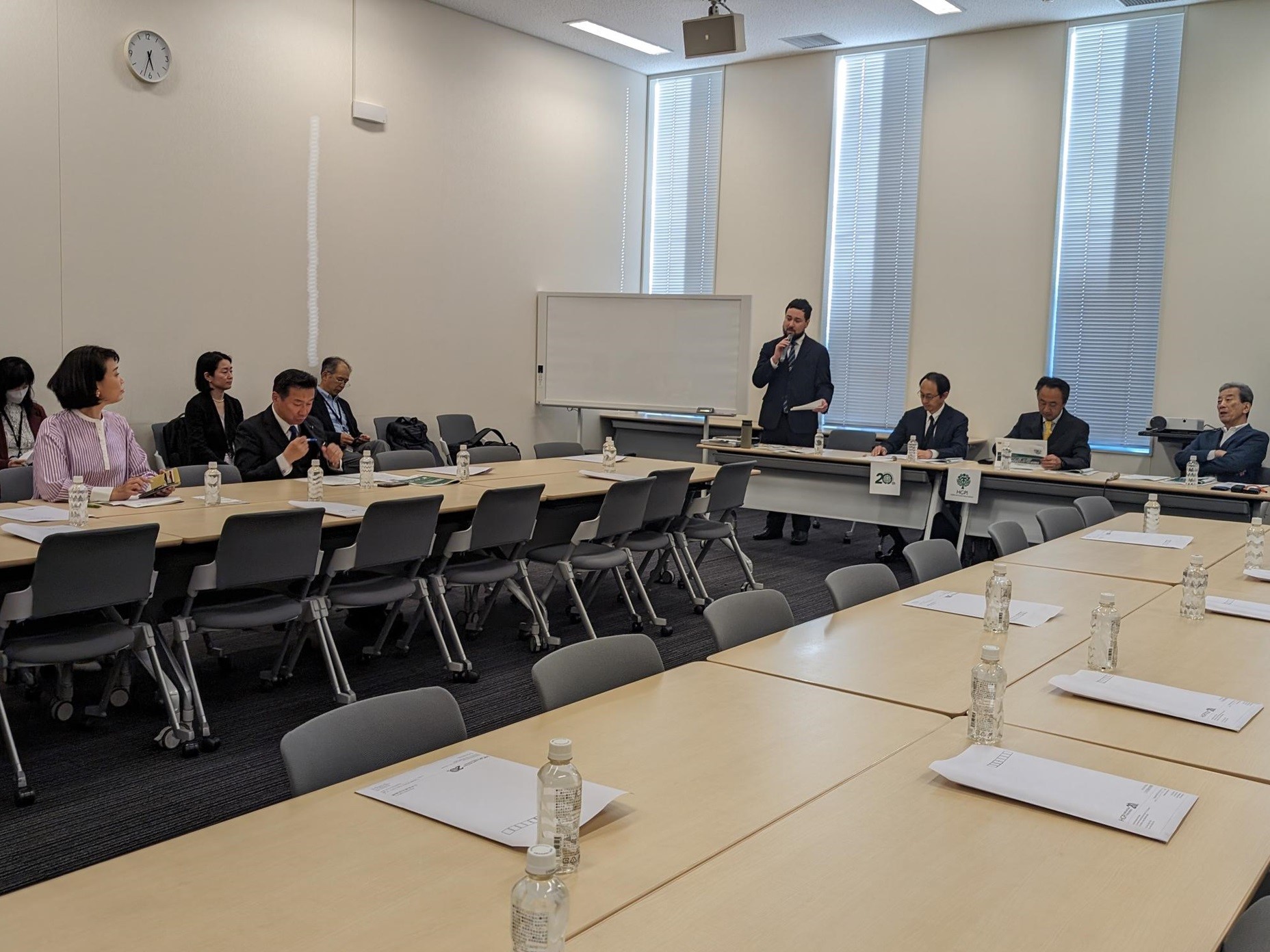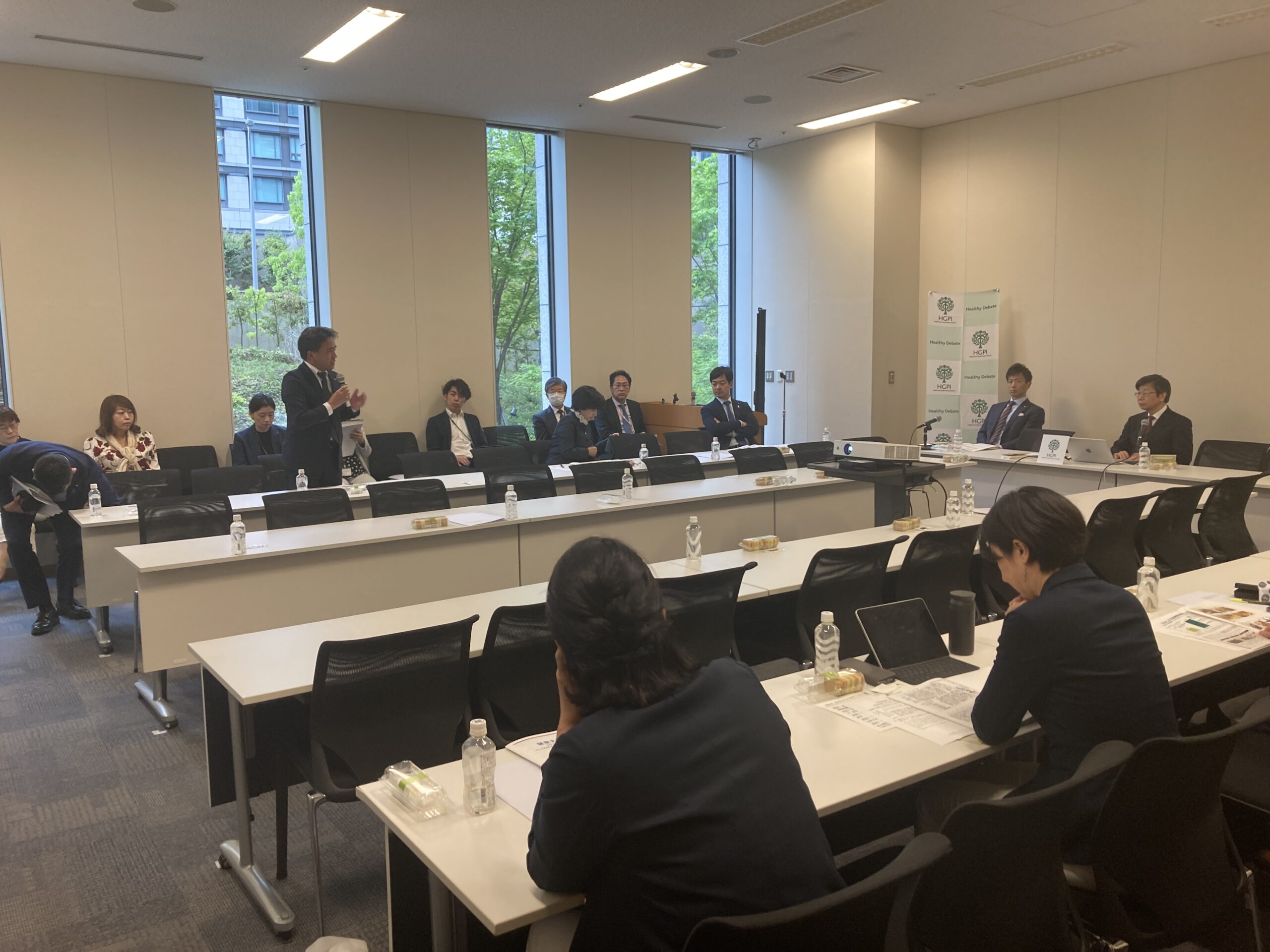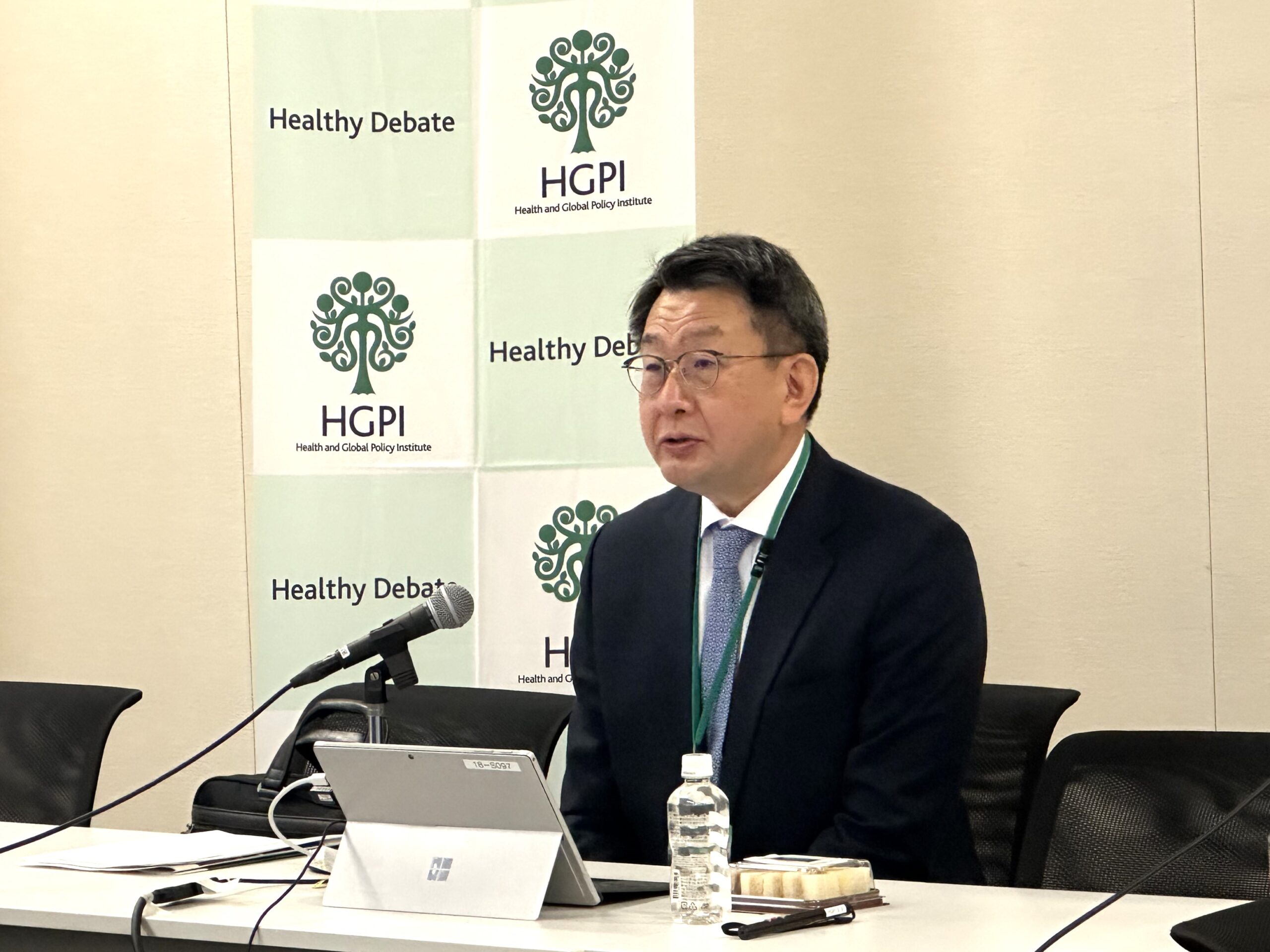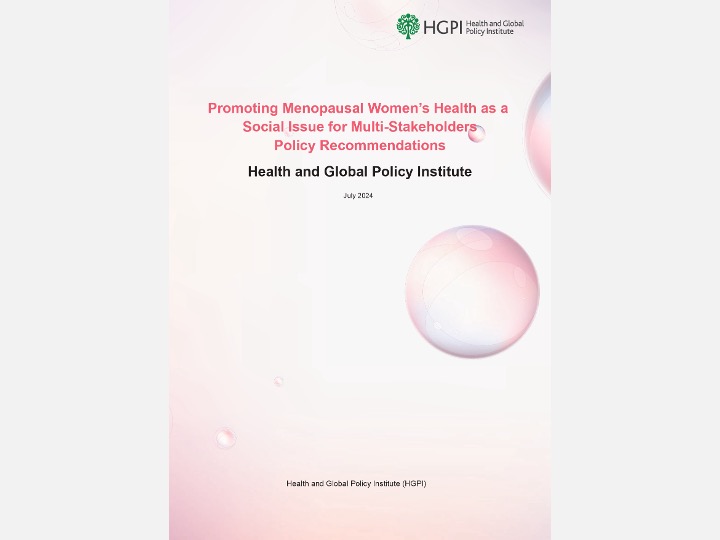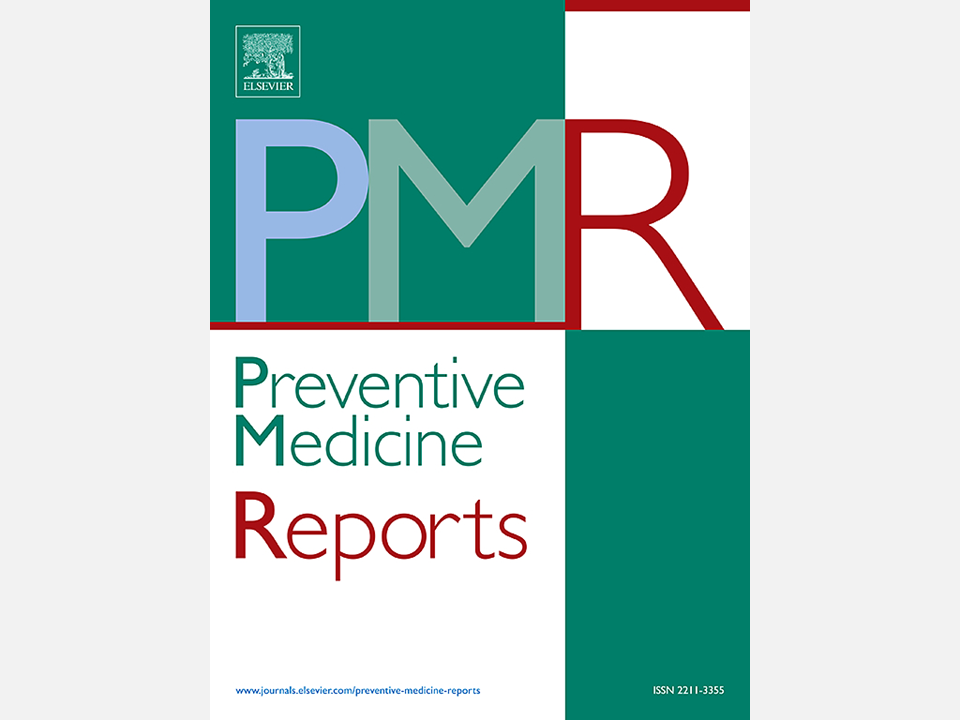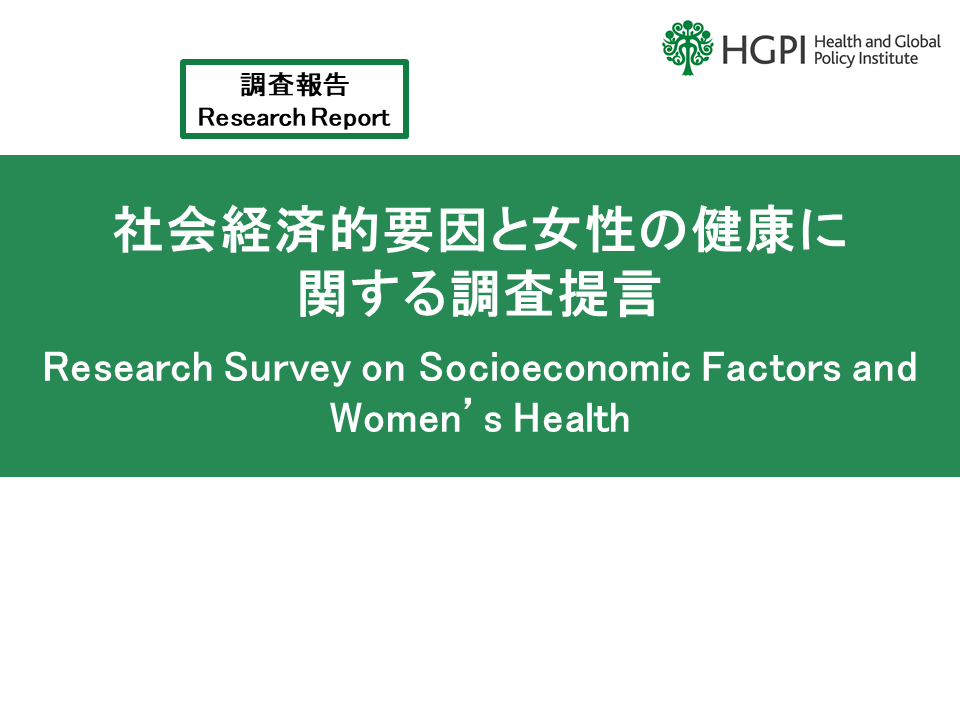[Event Report] Non-partisan Diet Member Briefing – 30-minute Health Policy Update “Promoting the Health of Menopausal Men and Women as a Social Issue” (December 10, 2024)
date : 2/12/2025
![[Event Report] Non-partisan Diet Member Briefing – 30-minute Health Policy Update “Promoting the Health of Menopausal Men and Women as a Social Issue” (December 10, 2024)](https://hgpi.org/en/wp-content/uploads/sites/2/ED9AA0F6-9F75-40FE-A064-BBD51E17CF12_1_201_a-scaled-2.jpeg)
Health and Global Policy Institute (HGPI) held a study session on health policy for nonpartisan Diet members entitled “30-minute Health Policy Update: Promoting the Health of Menopausal Men and Women as a Social Issue.”
Dr. Masakazu Terauchi (Professor, Department of Obstetrics and Gynecology, Ibaraki Prefecture; Graduate School of Medical and Dental Sciences, Institute of Science Tokyo) was invited as a lecturer to introduce the current health issues and measures for menopausal women and men, and policy issues to be promoted in the future.
The lecture was followed by a Q&A session, during which many questions were raised by the attending council members, providing an engaging opportunity for an exchange of opinions.
■Key points
- Health challenges during menopause represent a new issue accompanying increased life expectancy; due to individual differences in symptoms, there is no strict definition. The difficulty in specifically attributing individual symptoms to menopause is closely related to the complexity of treatment.
- The prevention of female hormones, for example estrogen, deficiency significantly contributes to health challenges in old age such as increased risks of cardiovascular disease, osteoporosis, dementia, etc. Therefore, estrogen is important not only for improving the quality of life during menopause but also for reducing the risk of various diseases in old age.
- The decline in male hormones in men is gradual, unlike the sudden drop in female hormones in women, and differs from the marked physical changes specific to women. Men also experience symptoms associated with hormone deficiency, such as decreased sexual function and mood decline, but improvement can be expected through male hormone supplementation.
Health Challenges in Women’s Menopause
Menopause is a relatively new health topic that first came to the attention of society after the 1960s, when the average life expectancy worldwide started to exceed 50 years of age. Today, more than half of all Japanese women are over the age of 50 and it is important from the perspective of extending healthy life expectancy to focus on female hormones, for example estrogen, and promote measures and initiatives for health management for women before, during and after menopause. According to the Japanese Society of Obstetrics and Gynecology, menopause is defined as “the five years before menopause and the five years after menopause, total 10 years.” However, this definition is modifiable and the real lived experience of individuals varies from person to person, making it difficult for individuals to judge their own condition as menopausal. While there is the assumption that symptoms are not caused by organic changes, a wide variety of symptoms can appear during menopause. Among these, symptoms resulting in conditions that interfere with daily life are known to cause menopausal disorders. It can be difficult to consider each individual symptom as a menopausal, a factor that complicates the diagnosis and treatment of menopausal symptoms and disorders.
Causes and Symptoms of Women’s Menopause
Menopausal symptoms are caused largely by the fluctuations that precede the reduction of estrogen. Because estrogen receptors, which are necessary for estrogen to function and act, are distributed not only in the breasts and uterus, but also throughout the body from head to toe, a decrease in estrogen results in a variety of systemic symptoms. Specific symptoms include autonomic nervous system symptoms, vasomotor symptoms, physical symptoms, anxiety, and insomnia. These are caused by a combination of biological and psychological factors that interact with socio-cultural and environmental factors, as well as decreased ovarian function.
Healthcare Access Issues for Those Affected
Currently, about 2.3 million people* in Japan are thought to be experiencing menopausal disorders, but only approximately 222,000 seek medical care and had responded to the Ministry of Health, Labor and Welfare’s patient survey. This means that only about 1 in 10 people with symptoms receive appropriate treatment at a medical institution for their symptoms. The biggest challenge for menopausal healthcare is that many individuals feel that they cannot visit a medical institution, or do not know which medical institution to visit. Even when people do access medical care, the accuracy of diagnosis depends on the examining physician’s expertise, which varies depending on the physician; this adds to the complexity of the current state of menopausal healthcare. It is crucial for medical institutions is to listen to patients while expressing “acceptance and empathy” in their response. This involves not only listening attentively to the voice of the patient but also delving into the psychosocial factors in their situation to have a holistic comprehension of their experience.
Relationship Between Menopausal Health Issues and Lifestyle
Lifestyle is the key to successfully addressing menopausal symptoms. It is especially important to maintain good dietary and exercise habits, and physicians and dietitians must work together like two wheels of a cart, not only prescribing medications but also encouraging healthy lifestyle habits when needed.
The Importance of Treating Menopausal Disorders with the Perspective of Healthy Ageing
Currently, there are three types of drug therapy for menopause: hormone replacement therapy (HRT), herbal medicine, and psychotropic drugs. HRT is particularly effective during periods of estrogen fluctuation and in preventing estrogen deficiency. Estrogen deficiency can lead to a rise in LDL cholesterol (negative cholesterol) in old age and the associated increased risk of arteriosclerosis, myocardial infarction, and cerebral infarction, as well as osteoporosis, dementia, and other health problems. Therefore, appropriate treatment during menopause is essential not only for improving the quality of life of menopausal women, but also to reduce the risk of a wide range of diseases later in life.
Health Challenges Associated with Male Hormone Decline
In recent years, the term “male menopause” has become more widely recognized. In men, this refers to health problems caused by a gradual decline in male hormone (testosterone) levels, and presents itself differently to the sudden drop in estrogen resulting in physical changes that occur in women. The main symptoms include decreased sexual function, mood swings, and anemia, which can be alleviated by supplementing hormone deficits.
*According to data from the Statistics Bureau of the Ministry of Internal Affairs and Communications (December 2024), Japan’s female population was approximately 63.67 million (as of July 2024), and the population between the ages of 45 and 54, which is generally considered the perimenopausal period, was 9.186 million (making up 14.4% of the total female population).
As a representative value calculated from various statistics, it is said that 80% of the total menopausal population experiences some menopausal symptoms, and 25% of the total menopausal population has symptoms severe enough that it causes interfere in daily life.
[Program] (titles omitted)
Opening Remarks
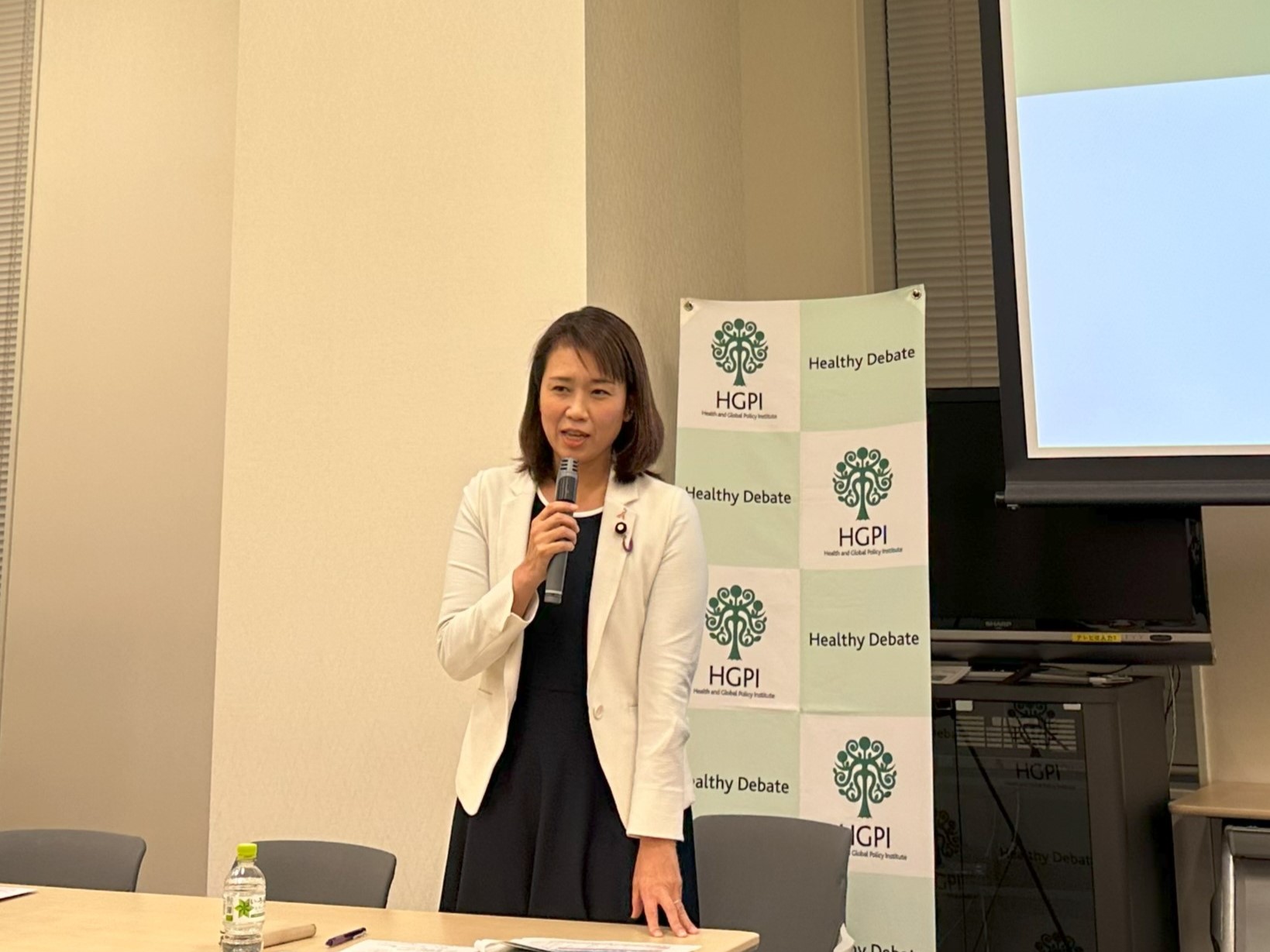 Takae Ito (Member, House of Councilors)
Takae Ito (Member, House of Councilors)
Explanatory introduction and overview of HGPI policy recommendations
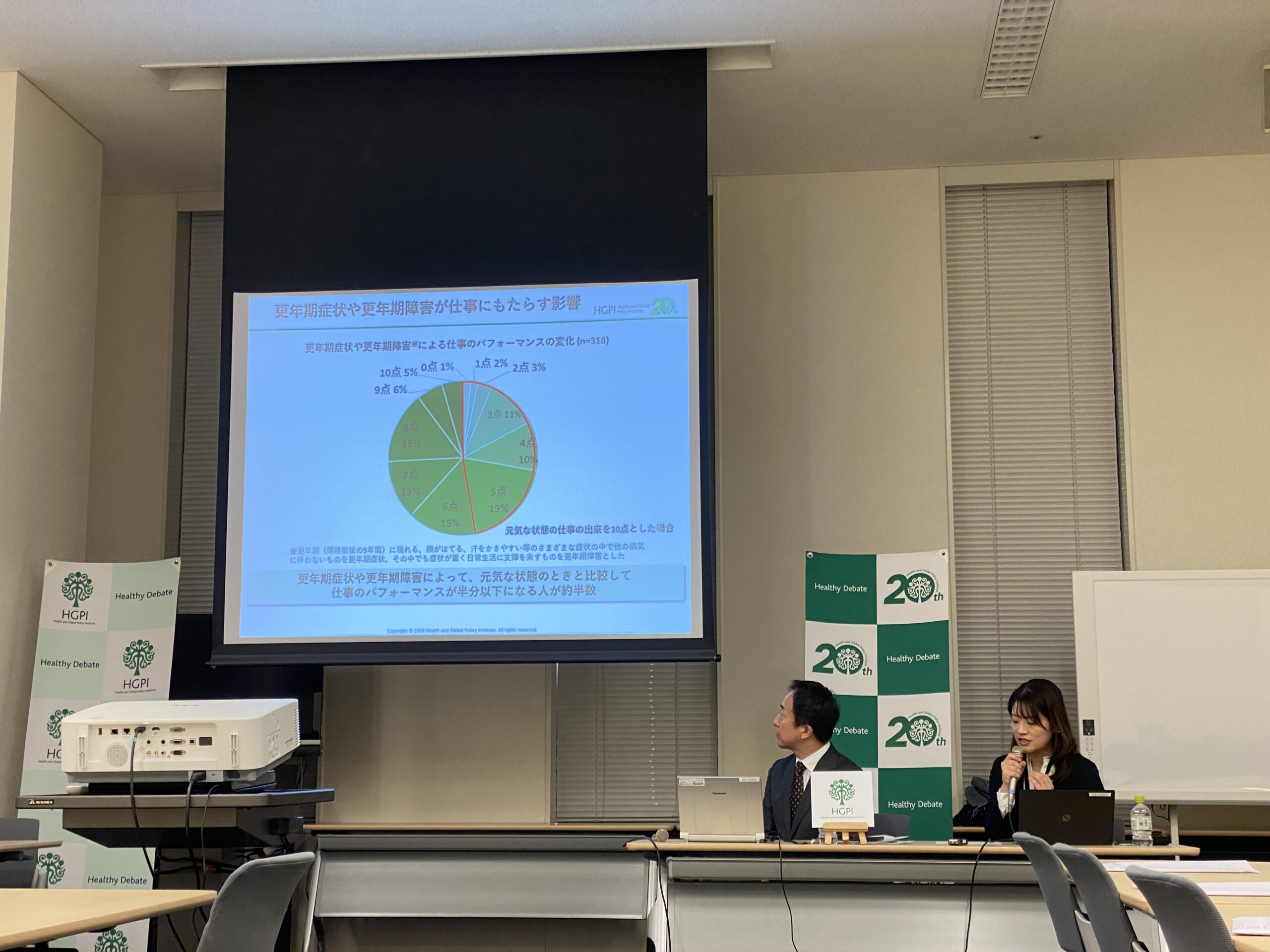 Eri Yoshimura (Senior Manager, Health and Global Policy Institute)
Eri Yoshimura (Senior Manager, Health and Global Policy Institute)
Lecture “Furthering Understanding and Promoting Measures for Menopause Based on Gender Differences between Men and Women”
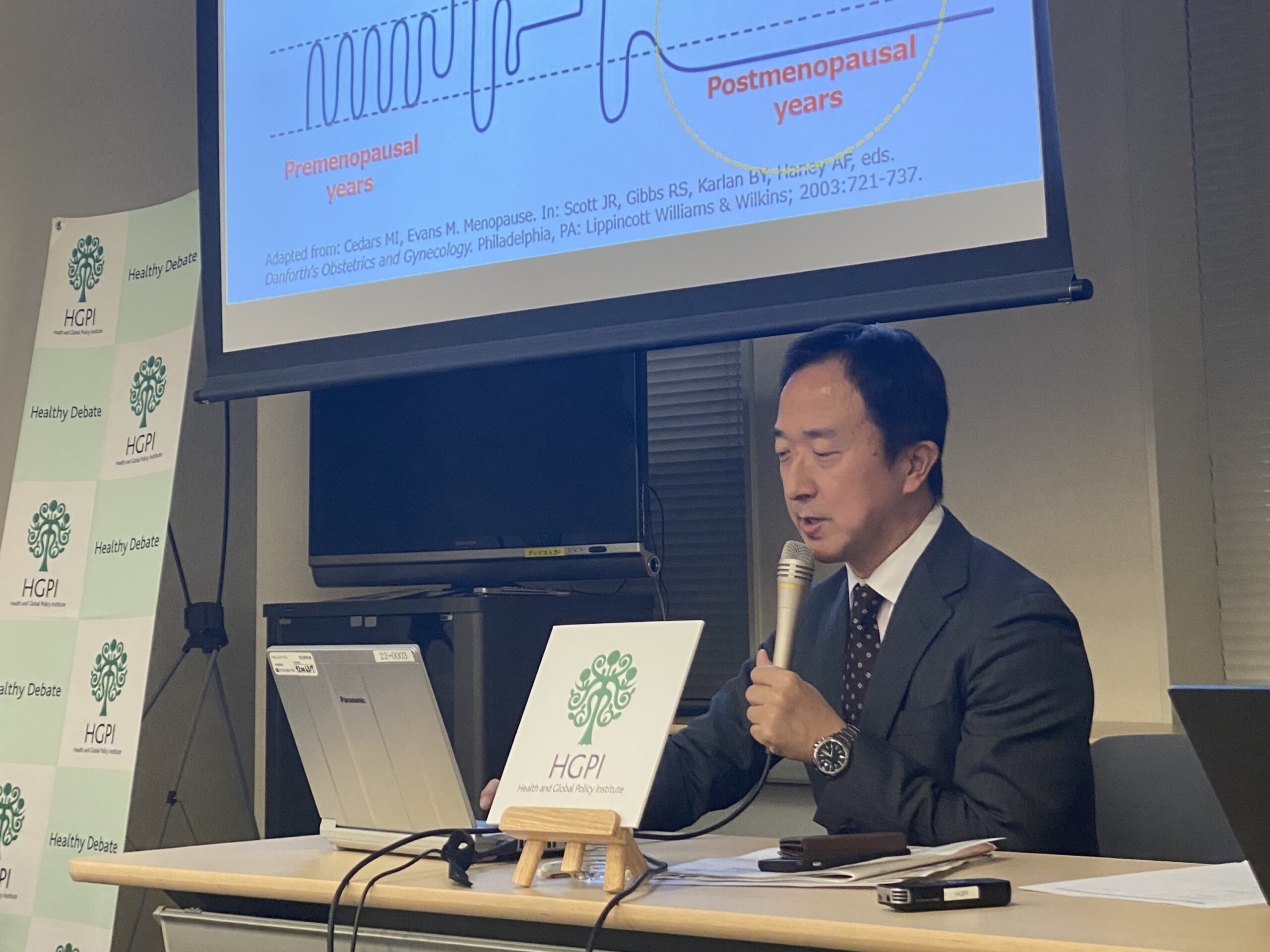 Masakazu Terauchi (Professor, Department of Obstetrics and Gynecology, Ibaraki Prefecture; Graduate School of Medical and Dental Sciences, Institute of Science Tokyo)
Masakazu Terauchi (Professor, Department of Obstetrics and Gynecology, Ibaraki Prefecture; Graduate School of Medical and Dental Sciences, Institute of Science Tokyo)
Top Research & Recommendations Posts
- [Policy Recommendations] The Path to a Sustainable Healthcare System: Three Key Objectives for Public Deliberation (January 22, 2026)
- [Research Report] The 2025 Public Opinion Survey on Healthcare in Japan (March 17, 2025)
- [Research Report] Perceptions, Knowledge, Actions and Perspectives of Healthcare Organizations in Japan in Relation to Climate Change and Health: A Cross-Sectional Study (November 13, 2025)
- [Policy Recommendations] Reshaping Japan’s Immunization Policy for Life Course Coverage and Vaccine Equity: Challenges and Prospects for an Era of Prevention and Health Promotion (April 25, 2025)
- [Research Report] The 2023 Public Opinion Survey on Satisfaction in Healthcare in Japan and Healthcare Applications of Generative AI (January 11, 2024)
- [Research Report] AMR Policy Update #4: Cancer Care and AMR (Part 1)
- [Public Comment Submission] “Assessment Report on Climate Change Impacts in Japan (Draft Overview)” (December 24, 2025)
- [Policy Recommendations] Developing a National Health and Climate Strategy for Japan (June 26, 2024)
- [Research Report] The Public Opinion Survey on Child-Rearing in Modern Japan (Final Report) (March 4, 2022)
- [Research Report] Survey of Japanese Physicians Regarding Climate Change and Health (December 3, 2023)
Featured Posts
-
2026-01-09
[Registration Open] (Hybrid Format) Dementia Project FY2025 Initiative Concluding Symposium “The Future of Dementia Policy Surrounding Families and Others Who Care for People with Dementia” (March 9, 2026)
![[Registration Open] (Hybrid Format) Dementia Project FY2025 Initiative Concluding Symposium “The Future of Dementia Policy Surrounding Families and Others Who Care for People with Dementia” (March 9, 2026)](https://hgpi.org/en/wp-content/uploads/sites/2/dementia-20260309-top.png)
-
2026-02-05
[Registration Open] (Webinar) The 141st HGPI Seminar “Current Status and Future Prospects of Korea’s Obesity Policy: Voices of People with Lived Experience in Policy Promotion” (March 3, 2026)
![[Registration Open] (Webinar) The 141st HGPI Seminar “Current Status and Future Prospects of Korea’s Obesity Policy: Voices of People with Lived Experience in Policy Promotion” (March 3, 2026)](https://hgpi.org/en/wp-content/uploads/sites/2/hs141-top-1.png)
-
2026-02-06
[Research Report] AMR Policy Update #5: Cancer Care and AMR (Part 2)
![[Research Report] AMR Policy Update #5: Cancer Care and AMR (Part 2)](https://hgpi.org/en/wp-content/uploads/sites/2/HGPI_20260204_AMR-Policy-Update-5.png)




